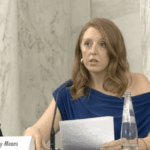Opening up the Biological Weapons Convention to new voices
By Marius Grinius | December 7, 2009
Each year, the Biological and Toxin Weapons Convention (BWC), the world’s foremost forum to abolish biological weapons, focuses on one or two areas that have been identified by States Parties as warranting more collective work. This year, as chair of the BWC Meeting of Experts (a global forum to gather authoritative views on identified areas of importance), I was charged with leading efforts for capacity building in the fields of disease surveillance, detection, and diagnosis and infectious disease containment–a process intended to forge links between those able to provide assistance in dealing with disease and those in need of such assistance.
Capacity building isn’t a contentious issue, and support is widespread. Still, translating support into tangible benefits for the global fight against infectious disease isn’t easy. Nevertheless, pursuing an action-based outcome was the challenge I set forth. I knew that in order to be successful it would be important to innovate and push the boundaries of how these meetings are usually carried out. To do so, I widened the group of participants, engaged participants in new ways, and tried to focus them on the task at hand.
In my judgement, the August meeting was a great success. First, participation was broad and diverse. Around 500 participants from more than 100 countries took part. Almost 200 technical experts provided input, and many international organizations, including the Food and Agriculture Organization, World Health Organization (WHO), and World Organization for Animal Health, contributed to the meeting. The private sector was represented along with national administrations, international organizations, professional bodies, and academia. It was a truly diverse international collective. As the delegation from Georgia put it, “Infectious diseases know no geographic boundaries; neither should we in combating them.”
The second success was getting the experts and national and international representatives to interact as much as possible. We offered national experts opportunities to make presentations, hosted a working session for contributions from relevant international organizations and professional bodies, set aside time for nongovernmental organizations to address the meeting, and held a poster session, which allowed presenters to visually put forth their information and findings (common in scientific conferences but much less so in international diplomacy).
Several presentations prompted prolonged exchanges from the floor, and participants actively moved around the room to talk to each other. We even attempted a “speed networking” event (imagine scientists doing speed dating), making it easier for experts to identify each other early in the week and facilitate interactions beyond what is normally possible. For those who could not attend, we webcast a large portion of the meeting. Recordings, as well as the presentations, statements, and working papers, are still available on the BWC website.
Of course, the “who” and the “how” are only the beginning of success. The real gains came in the dialogue about the opportunities and challenges that states and civil society face. We heard about the resources that are available, assistance and cooperation that has been extended, and additional potential opportunities. For example, a novel initiative is now in the process of establishing biosafety and biosecurity training centers throughout the Middle East and North Africa. At the same time, we heard about shortfalls in resources and capacity in dealing with disease.
Proposals to address these needs included strengthening the exchange of information and cooperation between States Parties and relevant international organizations, assisting States Parties in the full implementation of the WHO’s 2005 International Health Regulations, enhancing cooperation between the public and private sectors on disease surveillance, investing in human resources training and infrastructure, creating standard disease management procedures, partnering between laboratories in developed and developing countries, creating new vaccines, sustaining capacity-building measures in developing countries, building regional health infrastructures, and establishing a mechanism to promote the implementation of Article X of the BWC, which allows for the use of biological agents for peaceful purposes.
The next challenge is to translate our discussions at the Meeting of Experts into real action. To this end, I’ve been working with colleagues on a document for this month’s Meeting of States Parties in Geneva. My hope is that the document will help us identify common understandings on the problems and solutions that responding to disease raises. This will help States Parties take necessary actions–both individually and collectively.
It’s not easy. Such a document must accomplish a great deal and please many constituencies. It must incorporate the valuable substantive contributions from the August meeting while balancing competing interests and national priorities. And of course, it also must avoid the diplomatic potholes that may derail efforts to achieve a successful outcome at the December meeting.
Dealing with infectious disease, irrespective of cause, will never be simple. And it clearly will necessitate a coordinated and consolidated international approach. But it also requires an approach that breaks down traditional barriers and includes actors, such as public health professionals, who are rarely able to be heard at such large security gatherings. I believe the BWC has a key role to play in both creating the structures that allow for cooperation and in demonstrating that diversity and engagement can go a long way in building a foundation for success in fighting infectious disease, irrespective of whether its origins are natural, accidental, or deliberate.
Together, we make the world safer.
The Bulletin elevates expert voices above the noise. But as an independent nonprofit organization, our operations depend on the support of readers like you. Help us continue to deliver quality journalism that holds leaders accountable. Your support of our work at any level is important. In return, we promise our coverage will be understandable, influential, vigilant, solution-oriented, and fair-minded. Together we can make a difference.
Topics: Biosecurity, Opinion















